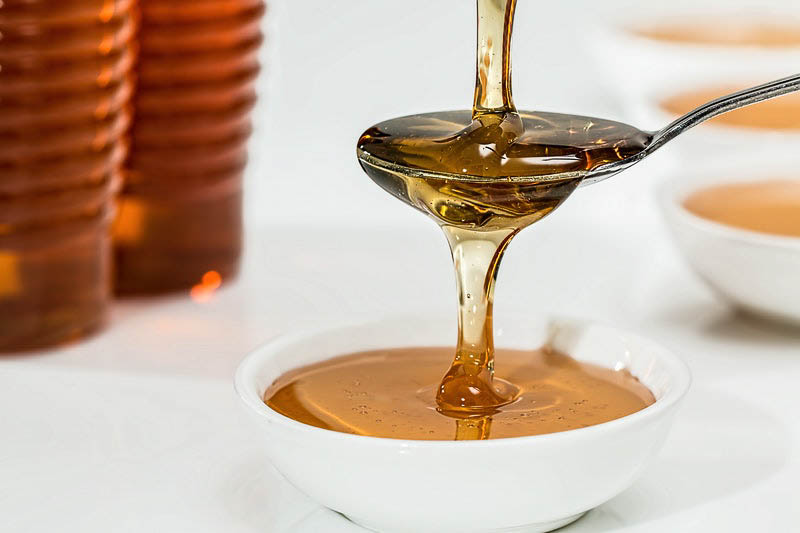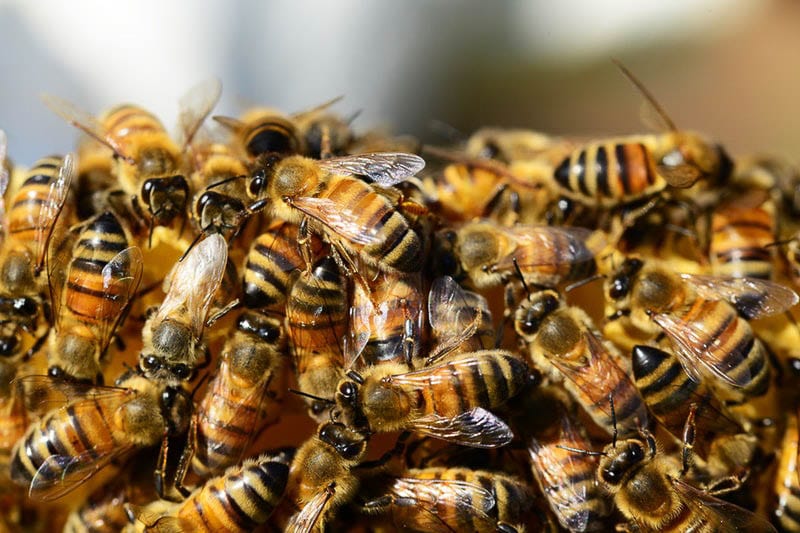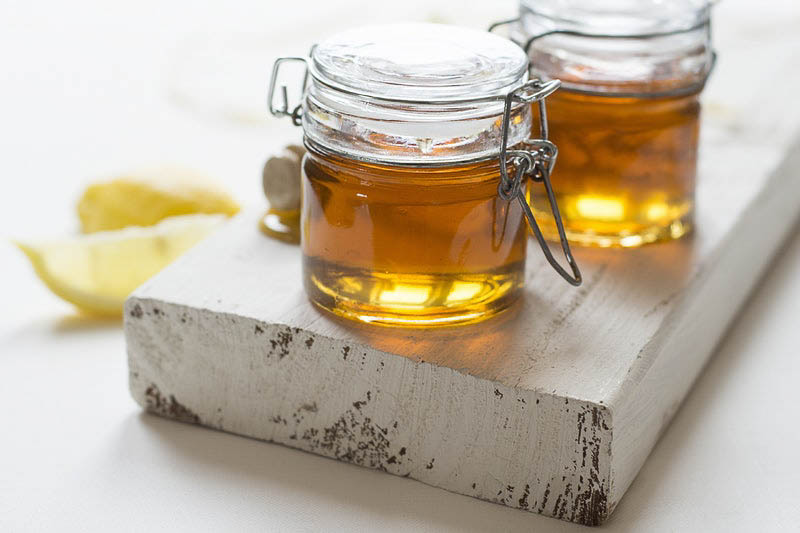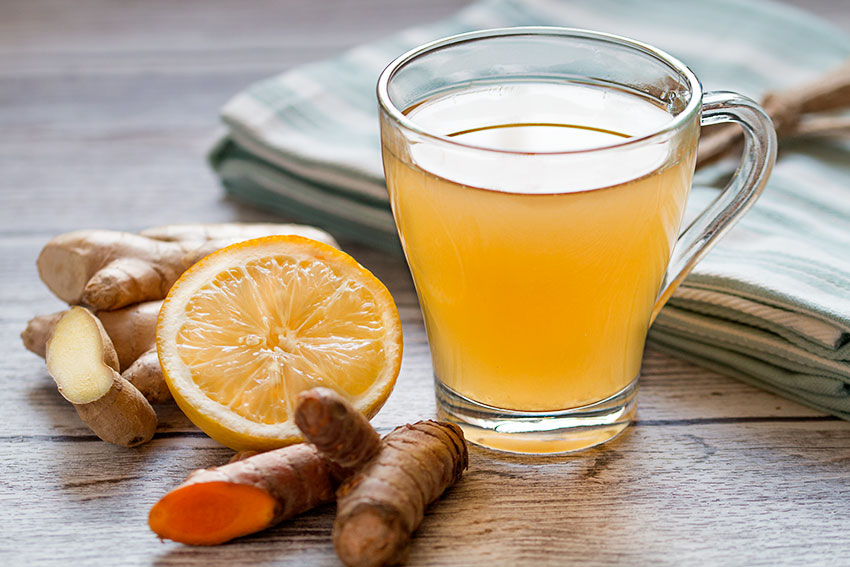
Winter is just around the corner and we better prepare our immune system for the cold days that are lying ahead.
Historically honey has been used for medicinal purposes dating back thousands of years. Manuka honey is considered to be one of nature’s richest antimicrobial sources. Its uses range from aiding sore throats, digestive illnesses to the treatment of wounds, acne and gingivitis.
Manuka honey is produced in New Zealand by bees that pollinate the Manuka bush.
Is Manuka honey good for you?
What distinguishes Manuka honey from regular honey is its amazing nutritional profile.
Most of us already know of the tremendous nutritional and immune-boosting abilities of raw honey.
Generally speaking, the typical raw unfiltered honey is a rich source of:
- Amino acids
- B vitamins (B6, thiamin, niacin, riboflavin, pantothenic acid)
- Calcium
- Copper
- Iron
- Magnesium
- Manganese
- Phosphorus
- Potassium
- Sodium
- Zinc
Yet with Manuka honey, the nutritional content is up to four times that of normal flower honeys. This is what we refer to as Unique Manuka Factor.
What separates UMF manuka from other manuka varieties is that it has both the natural hydrogen peroxide and its own natural UMF antibacterial property.
This significantly enhances its effectiveness, furthermore, the UMF properties of manuka are extremely stable. Also, unlike the hydrogen peroxide found in regular honey, it’s not easily destroyed by heat, light and enzymes in the body.
What is the best Manuka honey to buy?
Not all Manuka honeys are created equally, as Manuka honey became more popular it attracted companies with shady practices who cut the quality in order to increase their margins.
If you are looking to buy genuine Manuka Honey make sure to look for
- the UMF or MG/MGO stamp clearly showing on the front label.
- if it is produced in New Zealand.
- the label having a rating of UMF5 or more.
What do the different grades of Manuka Honey mean?
- 0–4 — Non-therapeutic
- 4–9 — Maintenance level with general honey health benefits
- 10–14 — Supports natural healing and bacterial balance
- 15+ — Superior levels of phenols that are highly therapeutic but shouldn’t exceed taking 1 tablespoon at a time
MGO to UMF Conversion table
MGO/MG Level UMF/NPA Grade
85 MGO = 5+
140 MGO = 6+
240 MGO = 8+
300 MGO = 10+
525 MGO = 15+
850 MGO = 20+
Dietary Methylglyoxal (MG) is the active ingredient in Manuka Honey. The higher the MG rating, the higher the antibacterial activity in the honey!
Is manuka honey better than regular or raw honey?
The answer to this depends on what you’re using it for and how much you’re willing to spend. If antimicrobial properties are important to you, then manuka honey may be your pick.
But let’s not forget that most of us aren’t putting manuka honey on our skin, we’re eating it.
So, beyond helping to heal wounds and skin infections, does manuka have benefits when ingested?
While manuka honey might help treat a sore throat or gingivitis by inhibiting bacteria, the main components responsible for the antimicrobial activity won’t survive the digestion process.
Honey, including manuka honey, does contain prebiotics which help to feed the good gut bacteria, so in this respect, honey may help support a healthy gut.
Let’s not forget to mention two other aspects as well, honey is still a form of sugar and therefore, should be consumed in moderation.
Secondly, besides being able to support local beekeepers, it is beneficial to consume produce from your area because that’s what your body has adapted to. Nutritionally speaking, raw local honey isn’t far behind Manuka honey.
How to treat a sore throat with Manuka Honey?
Pharyngitis, commonly known as a sore throat, is an acute infection induced by Streptococcus spp. In addition to streptococci, viruses, nonstreptococcal bacteria, fungi, and irritants such as chemical pollutants may also cause a sore throat.
Manuka honey is effective for treating a sore throat with its anti-inflammatory, antiviral, and antifungal properties.
Simply consume a teaspoon of Manuka honey to soothe a sore throat. Alternatively, you could drizzle it over your porridge or check out my delicious recipe for Turmeric & Ginger tea with Manuka Honey.
The honey coats the inner lining of the throat and destroys the harmful microbes while simultaneously soothing the throat.
Turmeric & Ginger Tea with Manuka Honey – A Natural Cold Remedy
Ingredients
- 1 cup filtered water
- 1-inch fresh ginger, thinly sliced
- 1-inch fresh turmeric, thinly sliced or 1 teaspoon ground turmeric
- juice of 1/2 lemon
- 1 tablespoon raw apple cider vinegar
- 1 teaspoon Manuka Honey
Instructions
- Fill filtered water into a kettle and bring to a boil. Fill it into a mug and let cool for a couple of minutes or until the temperature drops to approximately 60°C.
- Squeeze in the juice of 1/2 a lemon and add the remaining ingredients.
- Let it steep for 5 minutes, remove the ginger and turmeric slices and enjoy.
Recipe Notes
The water needs to have cooled down before you add the remaining ingredients or it will destroy the heat-sensitive Vitamin C of the lemon juice.
Also, check out these 5 Warming Winter Recipes To Keep You Nice And Coz!
Your turn
Have you tried Manuka honey yet? Let me know, I’m looking forward to reading your comments.
For more updates follow me on Facebook, Twitter, Instagram, Pinterest or subscribe to my YouTube channel!











Manuka Honey. That really special honey from New Zealand. Insane what it does. I also love it and take a teaspoon full every single morning and enjoy it sweet taste. Thanks for the information and hope to read much more interesting posts on your page.